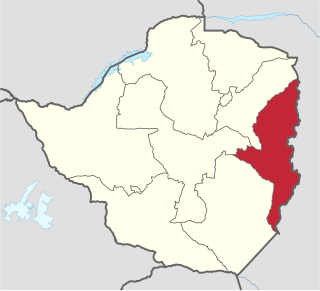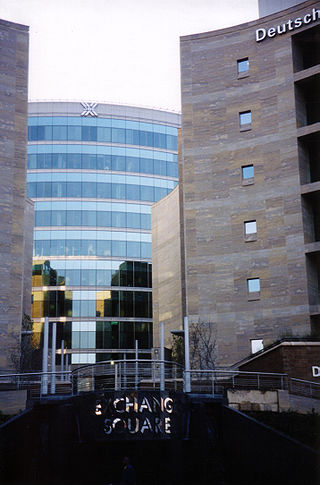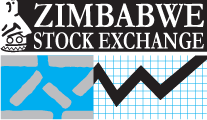
Manicaland is a province in eastern Zimbabwe. After Harare Province, it is the country's second-most populous province, with a population of 2.037 million, as of the 2022 census. After Harare and Bulawayo provinces, Manicaland is Zimbabwe's third-most densely populated province. Manicaland was one of five original provinces established in Southern Rhodesia in the early colonial period. The province endowed with country's major tourist attractions, the likes of Mutarazi Falls, Nyanga National Park and Zimbabwe's top three highest peaks. The province is divided into ten administrative subdivisions of seven rural districts and three towns/councils, including the provincial capital, Mutare. The name Manicaland is derived from one of the province's largest ethnic groups, the Manyika, who originate from the area north of the Manicaland province and as well as western Mozambique, who speak a distinct language called ChiManyika in Shona.

Mutare, formerly known as Umtali until 1982, is the most populous city in the province of Manicaland, and the third most populous in Zimbabwe, having surpassed Gweru in the 2012 census, with an urban population of 224,802 and approximately 260,567 in the surrounding districts, giving the wider metropolitan area a total population of over 500,000 people. Mutare is also the capital of Manicaland Province and the largest city in eastern Zimbabwe.

The Shanghai Stock Exchange is a stock exchange based in the city of Shanghai, China. It is one of the three stock exchanges operating independently in mainland China, the others being the Beijing Stock Exchange and the Shenzhen Stock Exchange. The Shanghai Stock Exchange is the world's third largest stock market by market capitalization. It is also Asia's biggest stock exchange. Unlike the Hong Kong Stock Exchange, the Shanghai Stock Exchange is still not entirely open to foreign investors and often affected by the decisions of the central government, due to capital account controls exercised by the Chinese mainland authorities.

JSE Limited is the largest stock exchange in Africa. It is located in Sandton, Johannesburg, South Africa, after it moved from downtown Johannesburg in 2000. In 2003 the JSE had an estimated 473 listed companies and a market capitalisation of US$182.6 billion, as well as an average monthly traded value of US$6.399 billion. As of March 2022, the market capitalisation of the JSE was at US$1.36 trillion.

Victoria Falls, popularly known as Vic Falls, is a resort town and city in the province of Matabeleland North, Zimbabwe. It lies on the southern bank of the Zambezi River at the western end of Victoria Falls themselves. According to the 2022 Population Census, the town had a population of 35,199.

The National Railways of Zimbabwe (NRZ), formerly Rhodesia Railways (RR), is a Bulawayo headquartered state-owned enterprise that operates the country's national railway system. It was established in 1893 and is governed by an Act of Parliament. It has a commercial-administrative center in Harare and a supply center in Gweru. The Zimbabwean railway system was largely constructed during the 20th century.

The Ghana Stock Exchange (GSE) is the principal stock exchange of Ghana. The exchange was incorporated in July 1989 with trading commencing in 1990. It currently lists 42 equities and 2 corporate bonds. All types of securities can be listed. Criteria for listing include capital adequacy, profitability, spread of shares, years of existence and management efficiency. The GSE is located within the Cedi House in Accra.

Meikles Limited is a conglomerate in Zimbabwe that owns, among other businesses, multiple luxury hotels, including the historic Hyatt Regency Harare The Meikles Hotel in central Harare, Barbours Department Store, Meikles department stores, Meikles Mega Market stores, Meikles supermarkets, Tanganda Tea.
Alfred Mulock Bentley (1878–1956) was an Irish-born financier who founded the Rhodesian Stock Exchange in Bulawayo in 1946. He served in the Boer War from 1899-1902.

African Distillers is a company in Zimbabwe. It is one of the largest producers of alcoholic beverages, primarily distilled spirits and wines, in Zimbabwe.

Chilanga Cement is a company of Zambia. Chilanga is principally a cement company, producing cement and cement clinker. The company also sales aggregates from a quarry it operates in Chilanga. The company is headquartered in Chilanga which is close to Lusaka, the national capital.
Bindura Nickel Corporation (BNC) is a mining company based in Zimbabwe's Mashonaland Central.

The following outline is provided as an overview of and topical guide to Zimbabwe:

Hyperinflation in Zimbabwe is an ongoing period of currency instability in Zimbabwe which, using Cagan's definition of hyperinflation, began in February 2007. During the height of inflation from 2008 to 2009, it was difficult to measure Zimbabwe's hyperinflation because the government of Zimbabwe stopped filing official inflation statistics. However, Zimbabwe's peak month of inflation is estimated at 79.6 billion percent month-on-month, 89.7 sextillion percent year-on-year in mid-November 2008.
Nedbank Zimbabwe Limited, also Nedbank Zimbabwe, is a commercial bank in Zimbabwe. It is licensed by the Reserve Bank of Zimbabwe, the central bank and national banking regulator. The bank was previously known as MBCA Bank, prior to rebranding to its present name.

FBC Bank, whose full name is FBC Bank Limited, is a commercial bank in Zimbabwe. It is licensed by the Reserve Bank of Zimbabwe, the central bank and national banking regulator.

The Zimbabwean dollar, also known as the Zimdollar or Real Time Gross Settlement (RTGS) dollar, was the currency of Zimbabwe from February 2019 to April 2024. It was the only legally permitted currency for trade in Zimbabwe from June 2019 to March 2020, after which foreign currencies were legalised again.
Rajeshkumar Indukant Modi is a Zimbabwean businessman and politician who is a member-elect of the National Assembly of Zimbabwe for Bulawayo South. He previously served as the MP for the constituency and as deputy minister of industry and commerce and from 2018 until 2023. He is a member of ZANU–PF.
Zimbabwe Newspapers (1980) Limited, operating as Zimpapers, is a state-controlled Zimbabwean mass media company. Originally a newspaper Publishing company, in the 2010s it expanded its operations to include commercial printing, radio and television. The company's portfolio includes over a dozen Magazines and newspapers, including The Herald and The Chronicle, several radio stations, and a television network. It is the largest newspaper publisher in Zimbabwe.
The Victoria Falls Stock Exchange (VFEX) is a small stock exchange headquartered in Victoria Falls, Zimbabwe. It was established in 2020, as a subsidiary of the Zimbabwe Stock Exchange (ZSE) to operate in the Victoria Falls special economic zone. The VFEX's trading currency of the U.S. Dollar allows the exchange to shield investors from exchange control risk.














